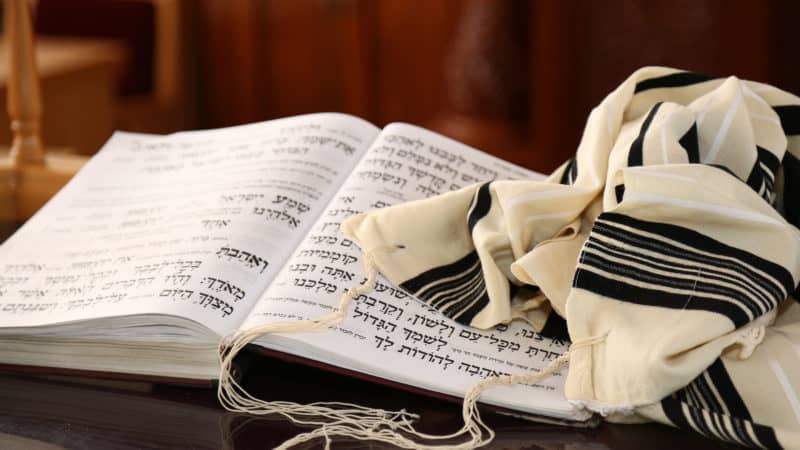Sometimes we just need a day off. A 24-hour period in which we don’t have to think about work or other worries and stressors of life.
Fortunately, God knew this and planned for it even as far back as His creation of this world.
The Sabbath was established by God after He made the world in six days. He was the first one to celebrate it and declared this seventh day a period of rest. A pause. A time for taking it all in—even before sin polluted the world and work became a burden.
Centuries later it was included in the Ten Commandments, so the children of Israel would remember where they came from, who their God was, and what a blessing it was they could partake in.
Today this blessing remains (Hebrews 4:9), just as God set it up after creating an entire world for us to live in and care for (Genesis 1:26). The Sabbath can be a welcome break that renews us for each week (making us more productive) while also allowing us to grow closer to Him.
But what does the Sabbath really mean? What does it symbolize, why is it a commandment, and how are we supposed to keep it in today’s world that never seems to stop?
The Sabbath is both simple and complex. It’s a wonderful gift that gives us time to recharge and reminds us of a loving, creative God.
It’s also important enough to God that He made it a commandment, regarding it as a symbol of belief, love, and respect. Keeping or remembering the Sabbath is something He asks of us, while at the same time blessing us with it.
So, let’s take a look at some key traits of the Sabbath as we learn more about it, and about God:
- The origin of the Sabbath at creation
- How Sabbath was intended as a gift from God
- How Sabbath connects you more closely to God
- How Sabbath can bring us closer to others
- How Sabbath is represented throughout the Bible
- How Sabbath is represented throughout history
- Celebrating Sabbath today

The First Sabbath—The Seventh Day, Following Creation
The answer to this question takes us back to the beginning of time on earth. Before there was any religion. Before there was a written law. Before evil, or sin, infected humanity.
If we start at the beginning of the Bible in Genesis, we learn about God speaking the world into existence, one day at a time. Of course, God didn’t need a whole day to manifest each of these parts of our world. From what we can tell, He likely did so as a way to show that each stage of development has its own significance and should be appreciated for what it is.
After the sixth day of creation, when He made human beings, He blessed the seventh day—even though the work of creation was done.
“So God blessed the seventh day and made it holy, because on it God rested from all His work that He had done in creation” (Genesis 2:2, 3, ESV).
While it wasn’t yet named “Sabbath,” this special seventh day was “made holy” in the name of His creation. God made time to appreciate and enjoy this world and invites us to regularly pause and do the same.
Learn more about the origin of the Sabbath

The Sabbath is a Gift from God
When life is difficult and tiring, often the best gift a person can receive is permission to stop and rest. God intended the Sabbath day to be just such a “delight” for humanity (Isaiah 58:13). It allows intentional time to rest from our work and spend consecrated time with Him.
Even though God didn’t “need” to rest after creating the world, He used the first Sabbath to demonstrate the importance of pressing pause, living in the moment, and being appreciative. He rested as an opportunity to shift focus—from doing to being. From making things to savoring them.
What a contrast to the busy lives we’re accustomed to. The to-do lists never end. We’re over-stimulated, and often drowning in expectations from ourselves and from others.
The term “self care” has become a frequently-used term because we’ve reached a point where we have to remind ourselves—even command ourselves—to take it easy. To give ourselves time to stop, calm down, and focus on what really matters.
God knows we need self-care. He also knows that the best way to care for yourself and others is to take a step back from the rat-race we can easily get sucked into. In fact, many contemporary medical and sociological studies affirm the idea of “a sabbath” to keep us from burning out.
He gave us the gift of a weekly Sabbath so we can “be still and know” that He is God (Psalm 46:10), and everything doesn’t have to rest on our shoulders.
Sabbath is the perfect time for “casting all your anxiety on Him, because He cares for you” (1 peter 5:7, NASB).
Additionally, God allows us the chance to extend this gift of Sabbath rest to those who live with us or work for us. He asks that we also let our children, servants, animals, and houseguests enjoy this weekly rest (Exodus 20:10).
Learn about many more ways the Sabbath is a gift from God

The Sabbath Connects us with God
A big part of what makes Sabbath such a gift is that it’s the perfect time to shift our attention to God, letting everything else fade into the background.
But what makes this weekly day off so important to God? Why did He include its remembrance in the Ten Commandments (Exodus 20:8-11), actually instructing us to cease from our work and provide a break to those who work for us?
God knew that keeping up relationships requires dedicated, intentional time. Sometimes we get so caught up in our busy lives that we need to be told to stop.
Even so, it’s strange to think of not wanting to take a day off from work. But several times in the Bible, people did not keep the Sabbath because they wanted an extra day of work to put themselves ahead of the rest or to make more money. Most of those in the Bible who were called out for “breaking the Sabbath” were using this “extra” time for just that.
The Sabbath can be the antidote for selfishness. It strengthens our faith as we learn more and more to rely on God to take care of us. We can claim the promise that God “will supply every need of yours according to His riches in glory in Christ Jesus” (Philippians 4:19, ESV).
This holy 24-hour period allows us to take our minds off of ourselves and everything life demands of us. That way we’re in the perfect state of mind to grow closer to God, and to more deeply experience everything He made for us. It’s a time to revive our very souls.
Learn more about how the Sabbath helps us connect with God

The Sabbath Connects us with others and strengthens relationships
As an extended blessing of the Sabbath Day, as we take time to slow down and reconnect with God, we also have a perfect opportunity to better connect with others as well.
God is a relational God. He wants a relationship with each one of us, and He wants us to have meaningful relationships with one another. The Sabbath allows time away from the stress of life to connect on a spiritual level with other Christians, with our families, and in service to those around us.
The very first humans got to spend the first Sabbath getting to know their Creator. At that point, relationships were already a part of the Sabbath.
As history continued, gathering together as believers became a common custom on the Sabbath.
Leviticus 23:3 called the Sabbath a day of “sacred assembly.”
When Jesus walked the earth, He was often found in the synagogues on the Sabbath, where He would frequently teach, read, or talk with those in His community((Matthew 12; Mark 1:21; 3:1; Luke 4:16, 31 )).
In Hebrews 10:24-25, Paul encouraged believers to continue fostering a Christian community, “not forsaking our own assembling together.”
There are many ways to keep this biblical custom today, which is why many Sabbath-keepers hold church services on the seventh day. Religious observance in this manner provides a perfect time to gather in worship, in study, and in fellowship—all in praise of our Creator. It’s also a wonderful way to keep one another accountable in the name of God’s commandment to remember the Sabbath Day.
In addition to worship services, the Sabbath gives opportunity for other relational gatherings. Many churches organize a Sabbath meal following worship. Believers can also take advantage of this consecrated time for community service or dedicated family gatherings.
Learn more about how the Sabbath can help us strengthen the relationships in our lives
How Sabbath is represented throughout the Bible
As we learn more about the meaning of the Sabbath and its many blessings, it’s also helpful to look at how the Sabbath was regarded throughout the entire Bible. It began at creation and continued as an everlasting memorial.
Learn how the Bible can help you find freedom, healing and hope in your daily life. Sign up for our free online Bible studies.
Sabbath in the Old Testament
After six days of creating the earth, God made a point to stop and meditate on how it was “good.” Genesis 2:3 tells us that He “sanctified” it.
In Exodus 12 and 16 there are mentions of “a holy Sabbath” or the “seventh day,” with references to sacred assemblies and refraining from work. But when the Ten Commandments were presented to the Israelites in Exodus 20, this special “seventh day” was officially referred to as “the Sabbath day” (Exodus 20:8), and God’s people were commanded to “remember” it, in order to “keep it holy.”
God later told Moses that the Israelites were to “keep My Sabbaths” as a covenant throughout generations to come, “that you may know that I, the LORD, sanctify you” (Exodus 31:13, ESV).
From here on, it’s clear how important the Sabbath is to God. It not only provided a much-needed rest for His people, it also helped them to stay focused.
When they became fearful, the Sabbath could help remind them that He was watching over them.
When they became prideful or arrogant, the Sabbath could remind them that He was the one providing for them. God was one worthy of praise, not them.
All through the Old Testament, the Sabbath was often talked about when discussing tabernacle or temple rituals meant to remind the Israelites of this covenant with God. There were psalms written for the Sabbath (Psalm 92), and several prophets made mention of its importance in maintaining a worshipful relationship with God (Isaiah, Jeremiah, Ezekiel, Amos, etc.).
“It is a sign forever between me and the people of Israel that in six days the Lord made heaven and earth, and on the seventh day he rested and was refreshed’” (Exodus 31.17).
Sabbath in the New Testament
When Jesus lived among humanity on earth, He often referenced Old Testament commandments in a new light. The primitive Israelites needed a lot of instruction on what to do and what not to do. But in Jesus’ day, humanity had matured somewhat. Now it was time to enlighten His followers on the depth of God’s laws—the blessings and meanings behind them.
Jesus did this with the Sabbath as well. The proud, rigid religious rulers of the day wanted all the Jews to keep the commandments in a concrete, measurable fashion (which made it easier for them to feel as if they were more righteous than others). But whenever they tried to “trap” Jesus into breaking the Sabbath, He responded by digging further into Scripture.
Several times He made the point that Sabbath was supposed to be a blessing that freed us from the burden of work so we could delight in God and His creation. It wasn’t supposed to be a burden itself!
“The Sabbath was made for man, and not man for the Sabbath,” Jesus said (Mark 2:27, CSB).
Jesus spent time with His disciples on Sabbath, healed people on the Sabbath, and taught His followers to serve others on the Sabbath (Matthew 12:11-12). His words and His deeds upheld the holiness and joy the Sabbath represented.
Even after Jesus’ death, resurrection, and ascension back to heaven, the Sabbath is mentioned all throughout the book of Acts as a day people gathered at the synagogue or in people’s homes. The early church grew quickly.
The last specific mention of the Sabbath is in Paul’s letter to the Hebrews, declaring that “a Sabbath rest remains for God’s people” (Hebrews 4:9). He further encourages them to “make every effort to enter that rest” (vs. 11).
Learn more about how the Sabbath is explained in the Bible

How Sabbath is represented throughout history
Beyond the recorded history of the Bible, the perception of the Sabbath morphed over time. Though nothing in Scripture gives any indication for changing which day to keep the Sabbath, the timing and traditions for Sabbath-keeping, or what’s considered the “day of worship,” has differed between various denominations of Christianity.
This chart gives an overview of the Sabbath from the beginning of the Bible to the present day:
| Dates | Event |
| 4004 BC According to Ussher’s Chronology – Note: Ussher’s Chronology takes the data from the Genesis genealogies at face value without considering possible gaps as indicated in the NT parallel genealogy of Luke. | Creation Week (Genesis 1-2) |
| 1950 > 1775 BC | Abraham kept God’s commandments, statutes, and laws (Genesis 26) |
| 1450 BC | The Exodus and Ten Commandments Given on Mount Sinai (Exodus 20) |
| 445 BC | Nehemiah encourages Israel to remember how to keep the Sabbath (Nehemiah 13). |
| 27 AD | Jesus’ earthly ministry and teachings on the Sabbath (Mark 2) |
| 31 AD | Early Christians observe Sabbath and meet in homes (The Book of Acts) |
| 321 AD | Constantine issues decree declaring Sunday as a day of worship |
| 343 >381 AD | The Council of Laodicea condemned the 7th day Sabbath((Council of Laodicea, Canon 29 )) |
| 400s AD | Early Celtic Church and St. Patrick of Ireland kept the 7th day Sabbath (Moffat, The Church in Scotland, p. 140((ST. PATRICK AND THE SABBATH by Curtis Rittenour ))) |
| 12th Century AD | Waldensians kept the 7th day Sabbath in France and Italy (The Great Controversy, Ellen White, Chapter 4) |
| 1845 | Joseph Bates, a protestant minister who eventually became one of the founders of the Adventist Church, rediscovered the 7th day Sabbath in his studies |
| 1863 | The Seventh-day Adventist Church was formally established |
God’s original seventh-day Sabbath persevered through history, despite many attempts to water down its holiness or sanctity, or to change the very day it is meant to be observed.
And as time grows closer to the Second Coming of Jesus Christ, it’s foretold by the prophet Daniel that the Sabbath will continue to come under subtle attack by those who oppose God (Daniel 7:25).
But why this focus on the day of worship?
As mentioned earlier, God made the Sabbath into a covenant with His followers (Exodus 31:12-18), as a distinguishing practice in their belief in Him. And those who are against Jesus Christ want to cause His followers to break that covenant and disregard His loving commands.
But rather than be fearful about such things, God asks us instead to trust Him. The covenant upholds the Sabbath as a reminder that God is the One “who sanctifies us.” We can claim this promise that God will lead us if we follow.
The Sabbath is a blessing He continues to extend to all who will believe.
Learn more about the fascinating story of Sabbath-keeping throughout history, and its significance in the “End Times

Celebrating Sabbath today
So, what about today? How do people observe the seventh-day Sabbath in this day and age, when life seems to keep us scheduled 24/7?
To remember the Sabbath day and keep it holy, many people choose to clear the day of obligatory plans, attend church, gather with others for a special meal, or look for ways to reach out to others.
Many Jewish people like to uphold ancient traditions of shabbat, the Hebrew root word of “Sabbath.” They cherish historical rituals such as pre-making challah bread the day before, lighting shabbat candles, and reciting blessings and prayers that bring to mind what God has done for us and for our ancestors in the Bible.
There are also new traditions you and your family can make that help remind you of God’s power and creation.
If Sabbath-keeping is new to you, it might take a few adjustments to your routine. But this can easily become a special part of the week that will rejuvenate you and allow you to focus on getting to know Jesus better.
Clear your calendar of obligations
Most careers keep us working Monday through Friday, so Saturday is already the first day off. To emphasize this day as one of rest and refocusing, it can be helpful to reschedule household projects, odd jobs, or other tasks that feel like “work.” It may be that most of them could easily be postponed until the next day.
This might not be possible right away, but as you make the seventh-day Sabbath a habit, you can start adjusting your schedule around it.
For those who often work on Saturdays, it might take more effort to devote the day to worshiping God. While some service jobs will inevitably require you to work on the Sabbath every so often, such as medical workers, caregivers, law enforcement, etc., some jobs will allow for schedule adjustments so you can better keep the Sabbath.
Use Friday as a preparation day
To make Saturday different from the rest of the weekend, it can be helpful to prepare things ahead of time on Friday so you can truly rest on the Sabbath. You might do some cleaning, tie up some loose ends at work, do some grocery shopping, or even run small errands like gassing up the car or pre-making breakfast.
Look for opportunities to worship God
Corporate worship is a wonderful blessing, so finding a church to attend can add to your Sabbath experience with God.
If you’re not yet involved with a local congregation, there are many other ways to keep Sabbath in the meantime.
- Take time to read your Bible, praying before and after
- Take a walk outside, making a point of noticing the small wonders of nature we often miss when we’re in a hurry
- Visit a friend you haven’t seen in a while. You might even find an opportunity to talk with them about your new experiences in learning about the Sabbath.
- Volunteer at a local soup kitchen, nursing home, community service project, etc.
- Join a Bible study group or local Sabbath school
- Visit a nearby park, wildlife preserve, or scenic area
There are limitless ways to celebrate the memorial of the first Sabbath day after God created the earth. When we truly take time to notice what God has done for us, our faith can grow and we can claim Jesus’ promise to “have life more abundantly” when we follow Him (John 10:10).
Learn more about many more ways you can experience the many blessings of the Sabbath
For a deeper understanding of what the Bible teaches about Sabbath, check out our free online Bible Studies.
